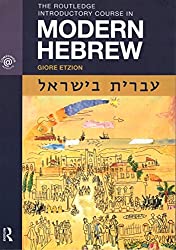
Are you beginning your Hebrew studies and wondering which books would be easiest for a beginner? These resources will assist in getting acquainted with the language, developing your vocabulary and pronunciation abilities.
Amazon offers several easy hebrew books for beginners , but I highly recommend reading reviews before making your purchase.
What is the easiest way to learn Hebrew?
Learning Hebrew can be done in several ways. You can use language learning apps, take a course at your local university or community center, or work with a private tutor.
The best way to learn Hebrew is by starting with core vocabulary and building upon it. This includes understanding words such as likes and dislikes, hobbies and pastimes, and food items that you must know.
At this stage, it's important to prioritize reading and writing as these skills must be practiced in order to gain fluency. Don't neglect outputs too much though – although they play a smaller role at present, they will become increasingly important in the future.
Another effective way to improve your Hebrew is by reading accessible texts that you can comprehend easily. Do this by reading news articles or short stories in English first, then switching back to Hebrew to check your understanding.
Beginners in particular will find this helpful, as it allows them to focus on developing the correct language skills at the correct time.
For beginners in Hebrew, there are plenty of free books online and at local libraries. If you want to expand your vocabulary, try using a flashcard system like Memrise or Anki; these apps are perfect for people who want to study Hebrew on the go.
How do you read Hebrews for beginners?
Hebrews is an early Christian letter often referred to as one of Paul's letters, written before the destruction of the Jewish temple in 70 A.D.
This sermon or letter was written to uplift and strengthen those who were Jewish, emphasizing Jesus' Priesthood and sacrifice as a way of reinforcing their faith in God.
Reading Hebrew can be difficult for beginners due to some distinct differences between it and English, such as right-to-left reading, various verb forms, and unique sounds.
Though these differences can be daunting, there are plenty of resources to help you learn the language. You can read these books online from the convenience of your own home or office at a time that works best for you.
Learning Hebrew requires practice, so the most effective way to become fluent with it is by investing a short amount of time each day in learning the language. Doing this will increase your comfort level when communicating in it and increase your comfort level overall.
Once you have acquired the basic knowledge of reading Hebrew, you can begin studying Scriptures. This site also offers Hebrew prayers and blessings as well as weekly Torah portions from a Messianic perspective.
Is Hebrew easy to learn?
Hebrew may not be one of the simplest languages to learn, but it can provide a fun and rewarding challenge for many people. It has several features that make it more approachable than other Semitic languages – so why not give it a shot?
Phonetics is the study of sounds made by each letter, meaning the sounds made by each remain constant regardless of where they're situated. This makes learning new vocabulary much simpler; you can pronounce words confidently and become familiar with their pronunciations quickly.
Grammar may appear complex, but its rules are straightforward and intuitive to comprehend once you understand them. Verbs have roots that fit into one of seven binyanim, which alter them according to subject, tense, gender and plural form.
Nouns, pronouns and adjectives all have different forms based on their gender. This rule applies to their singular and plural versions as well, so it's wise to become familiar with them.
No matter your level of Hebrew knowledge, learning the language can provide a wonderful insight into Israeli culture. Not only that, but it has mental and spiritual benefits as well. Learning this timeless language will enable you to appreciate its depth and complexity for yourself! It has stood the test of time; making it an essential asset in any modern-day language education system.
